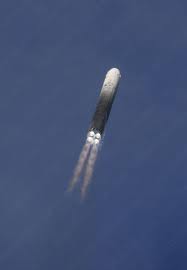(Carnegie Moscow Center) In the run-up to the Munich Security Conference, new details of the dispute between Moscow and Washington about Russia's new missile allegedly breaching the Intermediate Nuclear Forces (INF) Treaty became available to the media. U.S. officials shared their concerns with NATO allies in mid-January. On January 30, U.S. State Department admitted the existence of a potential INF compliance issue but emphasized that it was still under inter-agency review. News about the Russian missile initially broke last fall when the source of the contradiction was said to be the Russian RS-26 missile. However, as was immediately noticed by pundits, RS-26 had been tested, at least once, at an intercontinental range which exempts it from the INF Treaty limits. Citing intelligence sources, Washington has now explained that the problem is posed by a new Russian ground-launched cruise missile (GLCM) that has been undergoing tests in Russia over the last several years. In the absence of formal complaints from the American side, Russia has so far refused officially to comment on U.S. claims and hinted that the United States might itself be guilty of violating the treaty.
Some U.S. analysts reacted to the news by arguing that because GLCM requires a multi-year development cycle, Moscow made the decision to circumvent INF a while ago which shows that Russia is unreliable as a counterpart in arms control treaties. Another influential expert opined that Moscow is simply not interested in any further arms control treaties.
Both sides can still choose reassurance over politicization of the dispute. The Unites States are interested in Russia's support in negotiations with Iran and in the smooth functioning of the New START verification regime. For these and several other reasons, Washington may choose not to up the ante by releasing more details about the missile in question.
And yet the GLCM showdown might signify something worse than a short-lived misunderstanding—the rising risk of a breakdown of arms control arrangements between the United States and Russia. After Washington announced the deployment of new naval missile defense capabilities in Europe on February 1st, Moscow recalled the possibility of walking out of the New START. If the coincidence in time of bickering over GLCM and missile defense was not accidental, we may be in for a major inflammation in the U.S.-Russia relationships. Mutual recriminations over Ukraine will not help to resolve the outstanding arms control issues, so diplomatic tension between Moscow and Washington can easily wind up to a new high.
Mikhail Troitskiy is an associate professor at the Moscow State Institute of International Relations.
See the original post © Carnegie Moscow Center











